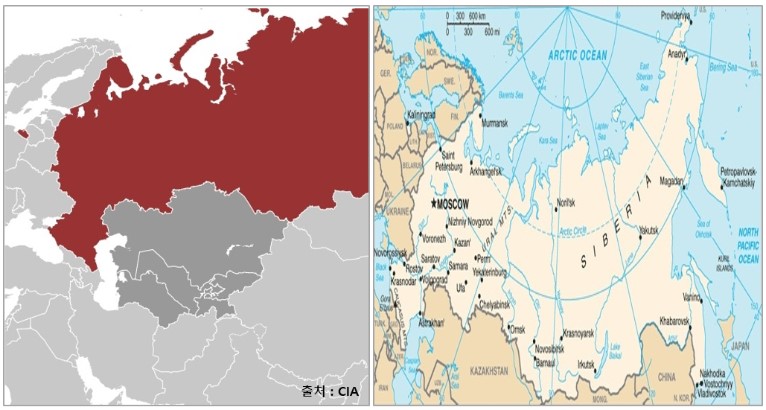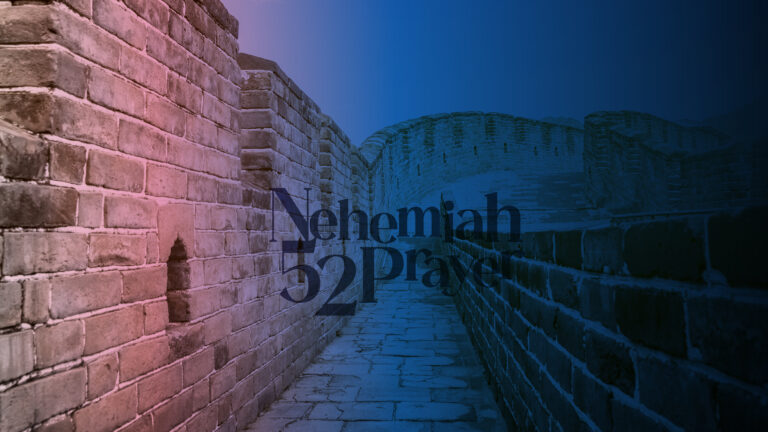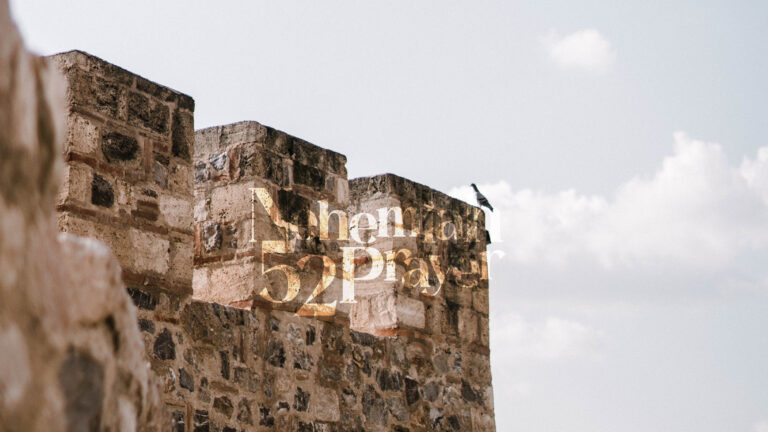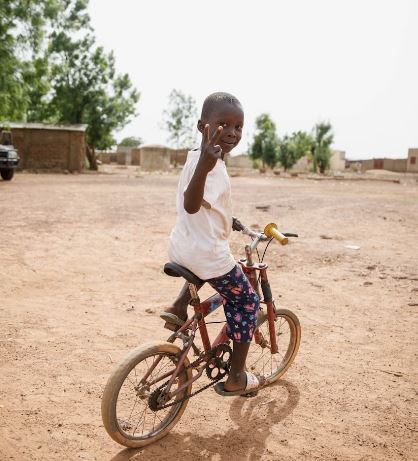“Blessed is Russia who trusts in the LORD!”
“But blessed is the one who trusts in the LORD, whose confidence is in him. (Jeremiah 17:7,NIV)

》 Country Profile
Continent | Central Asia
Population | 142.02 million
Area | 17,098,242㎢, The world’s largest country in eastern Europe and central and northern Asia.
Capital City | Moscow (12.64 million)
People Groups | Total 185 Groups, Russians 81%, Tatars 3.7%, Ukrainians 1.4%, others 7.2%
Unreached People Groups | 116 (12% of the population)
Official Language(s) | Russian
Total Languages | 129
Bible translations | Completed 56, New Testament 25, Partial 24
Religion | Christianity 57.6% (Protestant 1%, Orthodox 54%), Non-religious 30.4%, Islam 10%, Ethnic religions 1.7% Evangelicals 1.5% (2.13 million)
》 About Russia 1
Russia originated in the early 9th century as the ancient state of “Rus,” which means “the land of the Rus people.” In 988, Vladimir I adopted Greek Orthodoxy as the state religion, forming alliances with Western European countries and establishing the first legal code to expand Russian territory under a royal family system. After the Russian Revolution in 1917, communist leaders under Vladimir Lenin seized power, and in 1922, the Soviet Union was established. Joseph Stalin’s brutal regime cost millions of lives but solidified communist rule and Soviet dominance over Russia. Following its victory over Germany in World War II as part of its alliance with the United States (1939–1945), the Soviet Union expanded its territory and influence across Eastern Europe, becoming a global superpower. During the Cold War (1947–1991), the USSR(Union of Soviet Socialist Republics) was the United States’ main adversary. However, decades of economic and social stagnation followed Stalin’s rule. In 1991, the Soviet Union dissolved after nationalist tensions rose under Mikhail Gorbachev’s policies to end the Cold War. Russia then emerged as an independent nation. Under President Vladimir Putin (2000–2008, 2012–present), Russia transitioned into a centralized, authoritarian state. Rebel activities in regions like Chechnya were largely suppressed, but violence continues in the North Caucasus. On February 24, 2022, Russia invaded Ukraine, leading to ongoing conflict, significant casualties, and many displaced civilians.
Economically, Russia underwent substantial changes after the Soviet collapse, shifting from a centrally planned economy to a more market-oriented system. However, recent years have see a lack in growth and reforms. Wealth remains concentrated among bureaucrats, and state intervention in private industries persists. While many industries were privatized in the 1990s, sectors like energy, transportation, and defense remained exceptions. Property rights remain weak, with government interference limiting free enterprise. Russia is a leading global producer of oil and natural gas and the top exporter of metals like steel and aluminum. However, its heavy reliance on commodity exports leaves the economy vulnerable to fluctuations in global prices. In response to Russia’s invasion of Ukraine, Western nations imposed sanctions on Russian officials, companies, and banks. The economy is now grappling with reduced oil and gas production, declining retail activity, and high inflation.
Russia’s GDP per capita is approximately $30,660
》 Scripture Focus
| Jeremiah 17:5-8, 13-14(NIV) 5 This is what the LORD says: “Cursed is the one who trusts in man, who draws strength from mere flesh and whose heart turns away from the LORD. 6 That person will be like a bush in the wastelands; they will not see prosperity when it comes. They will dwell in the parched places of the desert, in a salt land where no one lives. 7 “But blessed is the one who trusts in the LORD, whose confidence is in him. 8 They will be like a tree planted by the water that sends out its roots by the stream. It does not fear when heat comes; its leaves are always green. It has no worries in a year of drought and never fails to bear fruit.” 13 LORD, you are the hope of Israel; all who forsake you will be put to shame. Those who turn away from you will be written in the dust because they have forsaken the LORD, the spring of living water. 14 Heal me, LORD, and I will be healed; save me and I will be saved, for you are the one I praise. |
》 Prayer Points
1. Though culturally dominant, the Russian Orthodox Church has minimal spiritual influence on its followers. About 54% of the population identifies as Orthodox, yet many do not believe in God. The church has grown increasingly rigid, suppressing other religions. This lack of spiritual activity stems from complacency among church leaders, inadequate leadership training, a lack of unity and sincerity within the church, and indifference to the spiritual needs of the younger generation.
Pray for the Orthodox Church to repent of its sin of trusting in human strength rather than God, allowing it to rise as a reformed church. Ask for the way of grace to be opened so people can hear the gospel of the cross revealed in Scripture and receive salvation.
2. Opportunities for sharing the gospel openly in Russia are diminishing. Protestantism is viewed as an obstacle to the growth of Orthodoxy and national unity. The Russian Orthodox Church, which survived communism by aligning with the state, has joined nationalist regimes to pass anti-missionary laws, obstruct other Christian denominations, and expel missionaries.
Currently, evangelical Christians make up about 1.5% of the population, or approximately 2.13 million. Internal conflicts among Baptists, conservative Pentecostals, and new charismatic groups also hinder unity.
Pray for legal systems to change, making the way for the gospel to be proclaimed freely across Russia. Ask for the church to find hope in God amid persecution, restoring life and unity in Christ.
3. Church leaders in Russia must build their guidance on biblical principles rather than authoritarian traditions. Most evangelical churches have a significant youth presence, but these young people often come from non-Christian backgrounds and need thorough biblical teaching and training. Hundreds of theological institutions have been established, ranging from discipleship programs to seminaries. These institutions, including SEAN’s Transnational Theological Extension (TEE) and Russia’s Open Theological Academy, address local issues and promote theological education.
Pray for leaders and believers in Russian churches to grow in holiness through Scripture and prayer and be thoroughly equipped in their faith. May the churches be like trees planted by streams of water, spreading out their roots to the river, remaining green even in the heat, and bearing fruit without fail, filled with unwavering faith.
》 Urgent prayer requests around the world need your prayer!





